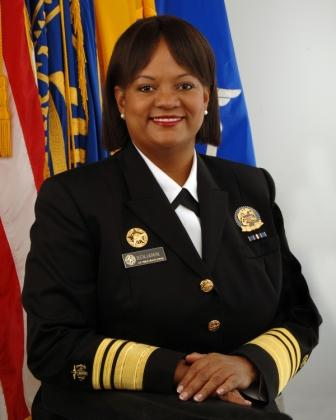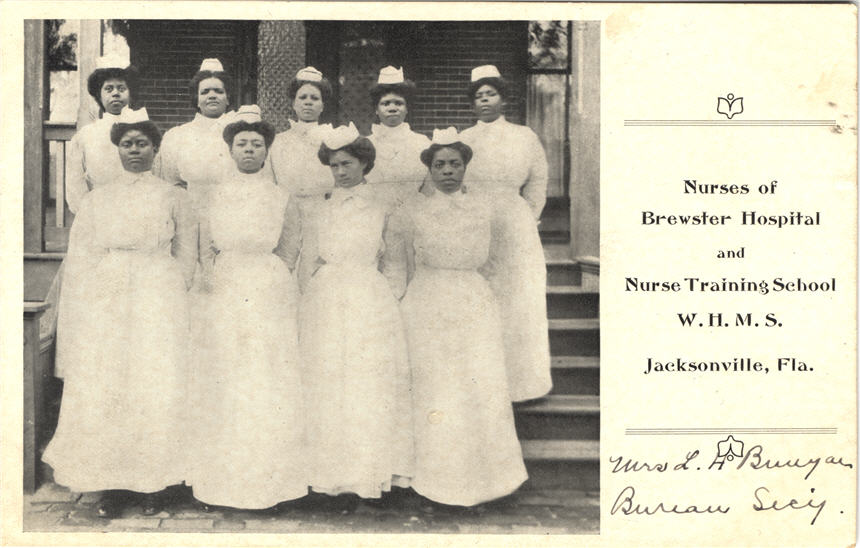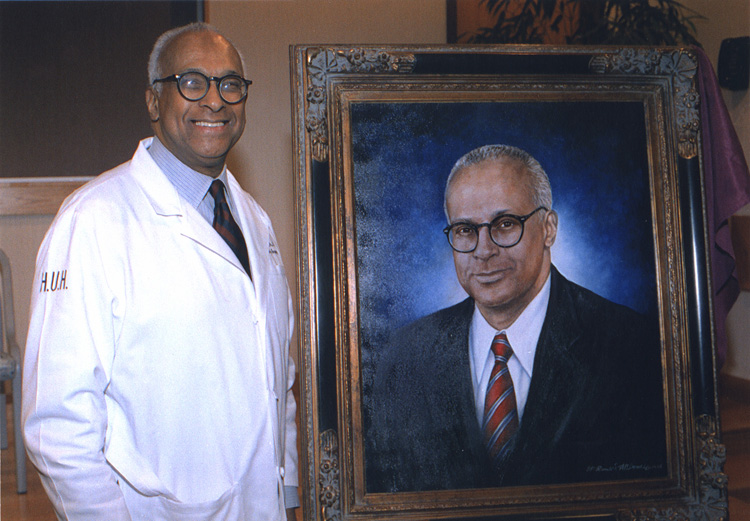Published: February 10, 2022
February is Black History Month, and we invite you to join us in observing the achievements of African Americans in U.S. history. This year we spotlight five African American trailblazers you may not be as familiar with, but who have made contributions in the field of health care. They are recognized in excerpts of the Congressional Record on govinfo. Visit the links to read more.
Dr. Regina Benjamin –  She is the former Surgeon General appointed by President Obama in 2009, and she is considered a force behind the first National Prevention Strategy.
She is the first African American woman to become President of the State Medical Society of Alabama, and she is the founder and CEO of a rural clinic in Alabama. In the Congressional Record Volume 154, Issue 156 (September 28, 2008), she is congratulated for winning a John D. and Catherine T. MacArthur Foundation Fellowship. “The MacArthur Fellowship is awarded annually to individuals recognized for extraordinary originality and dedication in their creative pursuits and a marked capacity for self-direction.” Read a congratulations on her nomination as Surgeon General of the United States of America in the Congressional Record Volume 155, Issue 125 (September 8, 2009).
She is the former Surgeon General appointed by President Obama in 2009, and she is considered a force behind the first National Prevention Strategy.
She is the first African American woman to become President of the State Medical Society of Alabama, and she is the founder and CEO of a rural clinic in Alabama. In the Congressional Record Volume 154, Issue 156 (September 28, 2008), she is congratulated for winning a John D. and Catherine T. MacArthur Foundation Fellowship. “The MacArthur Fellowship is awarded annually to individuals recognized for extraordinary originality and dedication in their creative pursuits and a marked capacity for self-direction.” Read a congratulations on her nomination as Surgeon General of the United States of America in the Congressional Record Volume 155, Issue 125 (September 8, 2009).
Dr. James McCune Smith – In 1837, he became the first African American to receive a medical degree. In the Congressional Record Volume 159, Issue 88 (June 19, 2013), it is stated that “In fact, the nation’s first African-American doctor, Dr. James McCune Smith was barred from attending medical school in New York City, where he lived, so he attended medical school in Scotland and obtained his degree in 1837. He then returned to New York, set up a medical practice in lower Manhattan, and became the resident physician at an orphanage.” He was also the first African American to own and operate a pharmacy in the U.S. and publish peer-reviewed articles in medical journals.
Mary Eliza Mahoney – She was the first African American woman to become a licensed registered nurse in the U.S.  Black women were often excluded from formal mainstream nursing education and training, but she graduated in 1905 from New England Hospital for Women and Children. She went on to become a well-respected private nurse and a member of the American Nurses Association. She was also a notable activist in the nursing field and a supporter of women’s suffrage.
In a tribute to her in the Congressional Record Volume 152, Issue 117 (September 19, 2006), it is stated that “Ms. Mahoney changed the face of nursing as the first African American woman. Afterwards, black students were accepted at school as long as they met the requirements. Not only did she pave the way for African Americans as nurses, she advocated for them.” Read more honors in the
Congressional Record Volume 150, Issue 22 (February 26, 2004), and the
Congressional Record Volume 152, Issue 38 (March 30, 2006),
Black women were often excluded from formal mainstream nursing education and training, but she graduated in 1905 from New England Hospital for Women and Children. She went on to become a well-respected private nurse and a member of the American Nurses Association. She was also a notable activist in the nursing field and a supporter of women’s suffrage.
In a tribute to her in the Congressional Record Volume 152, Issue 117 (September 19, 2006), it is stated that “Ms. Mahoney changed the face of nursing as the first African American woman. Afterwards, black students were accepted at school as long as they met the requirements. Not only did she pave the way for African Americans as nurses, she advocated for them.” Read more honors in the
Congressional Record Volume 150, Issue 22 (February 26, 2004), and the
Congressional Record Volume 152, Issue 38 (March 30, 2006),
Dr. LaSalle D. Leffall, Jr.– He was a leading oncology surgeon and educator, and he served as the first African American President of the American College of Surgeons. He was also the first African American President of the American Cancer Society.
 In a tribute to him in the Congressional Record Volume 143, Issue 22 (February 26, 1997), he is noted as “a distinguished fellow alumnus of Florida A&M University, is the Charles R. Drew professor of surgery at Howard University College of Medicine, and like the namesake of his chair, his accomplishments are too numerous to list. His profound and unselfish dedication to the African-American community, especially in education and medicine, is unsurpassed, and deserves the highest recognition.” Read about more his life and achievements in this Congressional Record. He died after a battle with cancer in 2019.
In a tribute to him in the Congressional Record Volume 143, Issue 22 (February 26, 1997), he is noted as “a distinguished fellow alumnus of Florida A&M University, is the Charles R. Drew professor of surgery at Howard University College of Medicine, and like the namesake of his chair, his accomplishments are too numerous to list. His profound and unselfish dedication to the African-American community, especially in education and medicine, is unsurpassed, and deserves the highest recognition.” Read about more his life and achievements in this Congressional Record. He died after a battle with cancer in 2019.
Otis Boykin – During his career, he patented 28 electronic devices and developed electronic components for televisions and computers, making them more affordable. He is best known for improving the pacemaker by inventing a control unit that regulated it with more precision. In the Congressional Record Volume 149, Issue 32 (February 27, 2003), it is stated that “Otis Boykin will be remembered as one of the greatest inventors of the twentieth century.”
Article Sources and Additional Resources
Opening Doors: Contemporary African American Academic Surgeons, National Institutes of Health (NIH) Learn more about trailblazers and educators who opened doors to better health care for the African American community
African American Nurses, National Park Service (NPS).
Changing the Face of Medicine, Biography of Dr. Regina Marcia Benjamin, NIH.
Paving the Way for African Americans in Military Medicine: A Look Across Time, Defense Health Agency
Celebrate African American History Month, Centers for Disease Control and Prevention (CDC) Learn about how heart disease, cancer, and stroke impact African Americans and how to improve your health.
Black History Month, Health and Human Services (HHS) This month, visit this webpage to find information on key health concerns impacting Black communities, and learn about prominent historical figures within the medical field, and access resources.
Fact Sheet: Celebrating Black History Month 2022 (HHS) This fact sheet is a snapshot of various efforts made by the U.S. Department of Health and Human Services to advance health equity ad improve health outcomes of Black communities.
Lessons that Make Cents (U.S. Mint) Find ways to celebrate Black voices and bring history to life with resources from the U.S. Mint Coin Classroom.